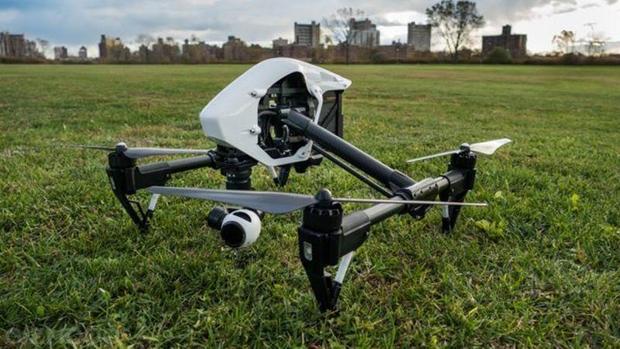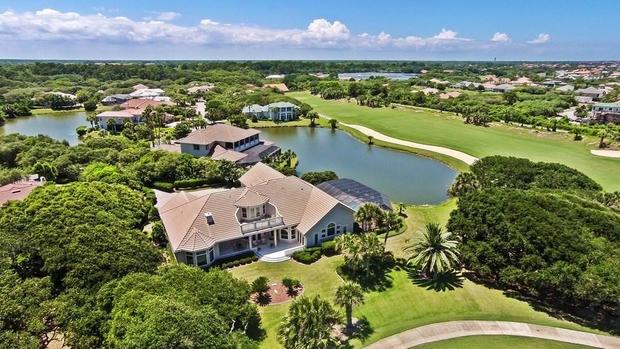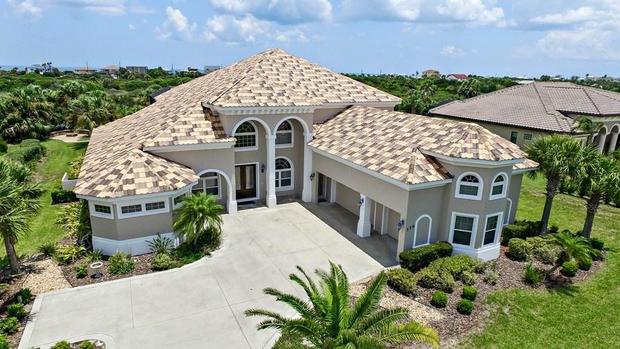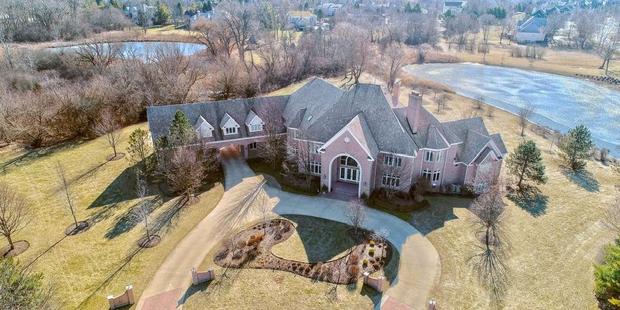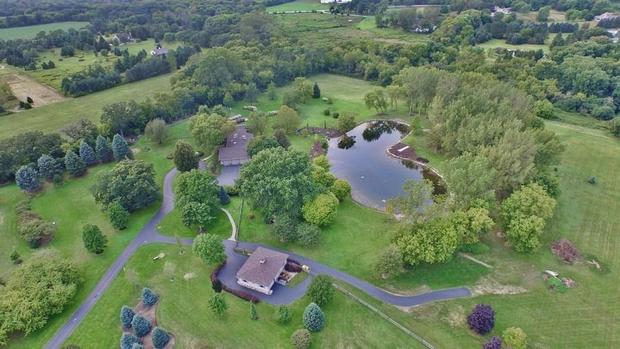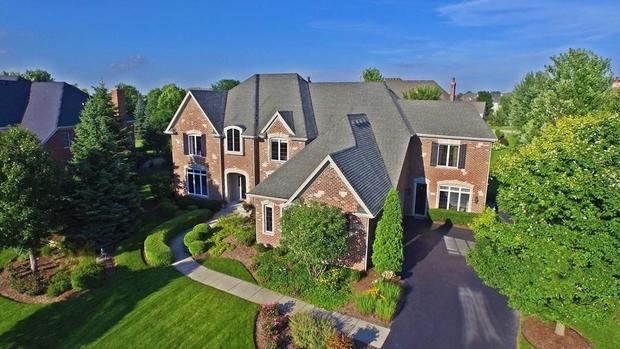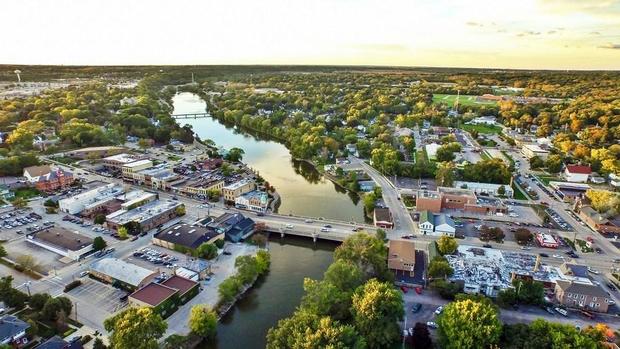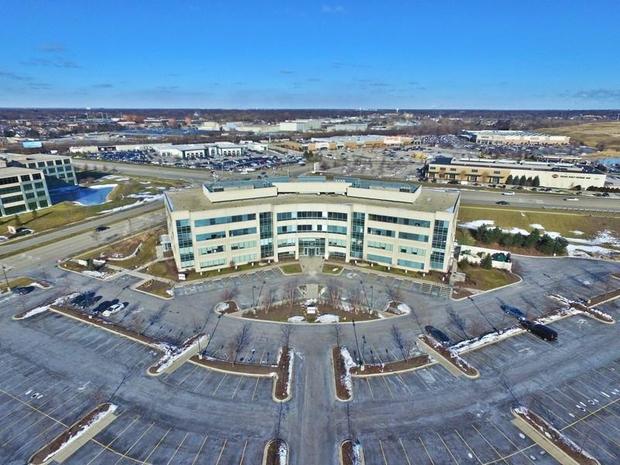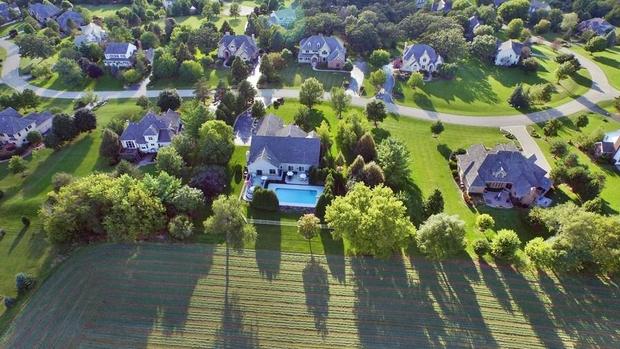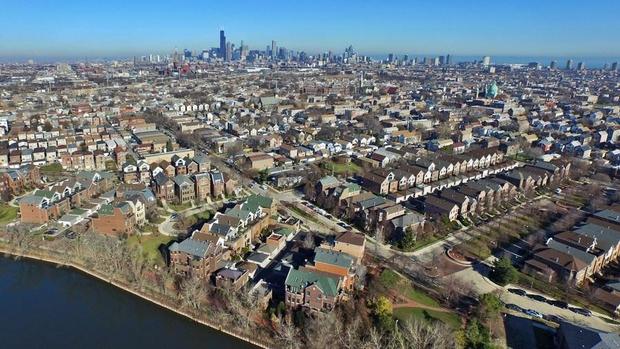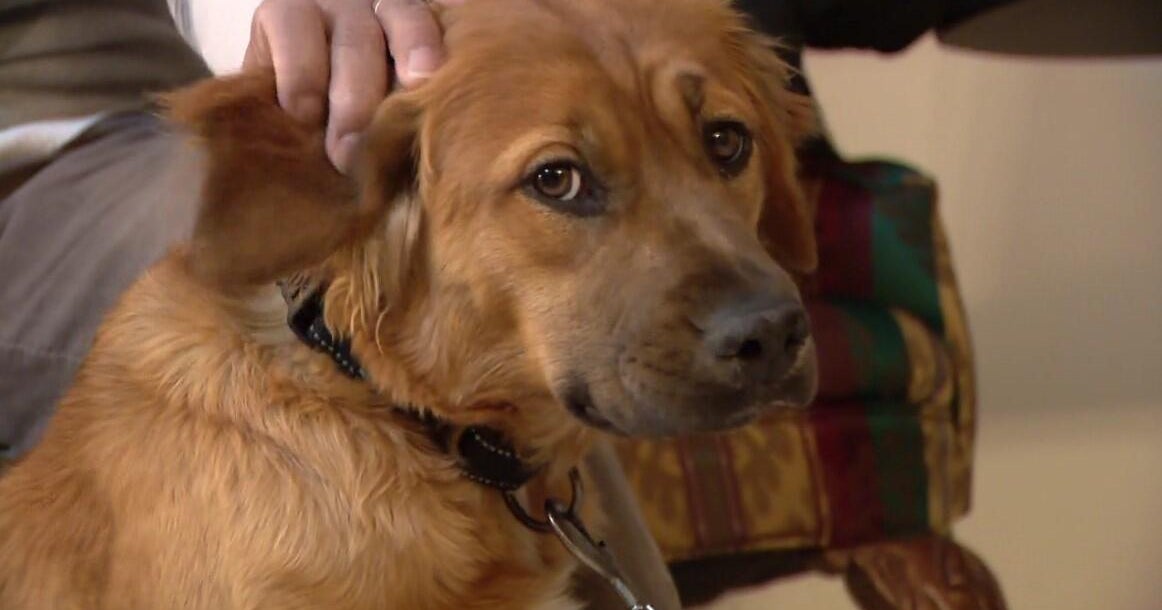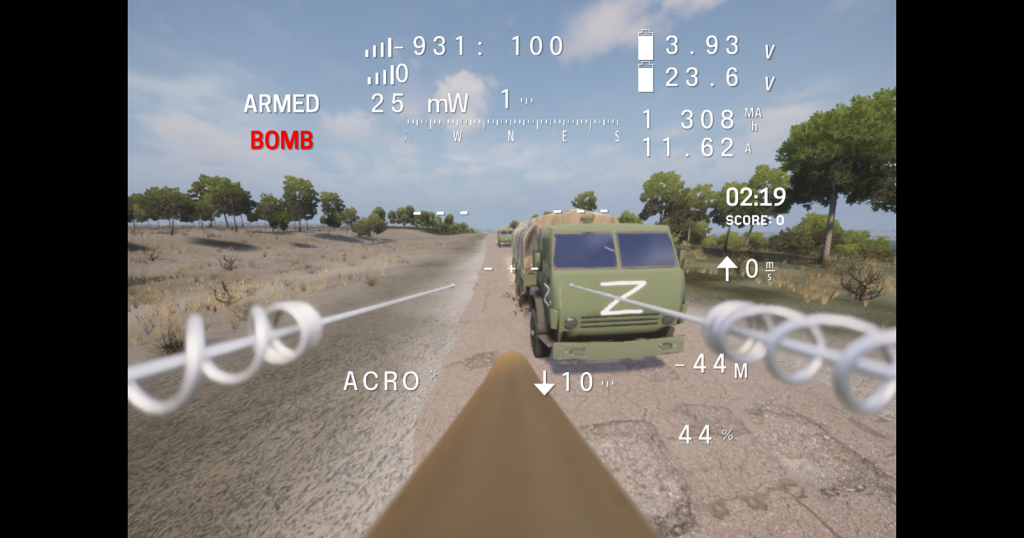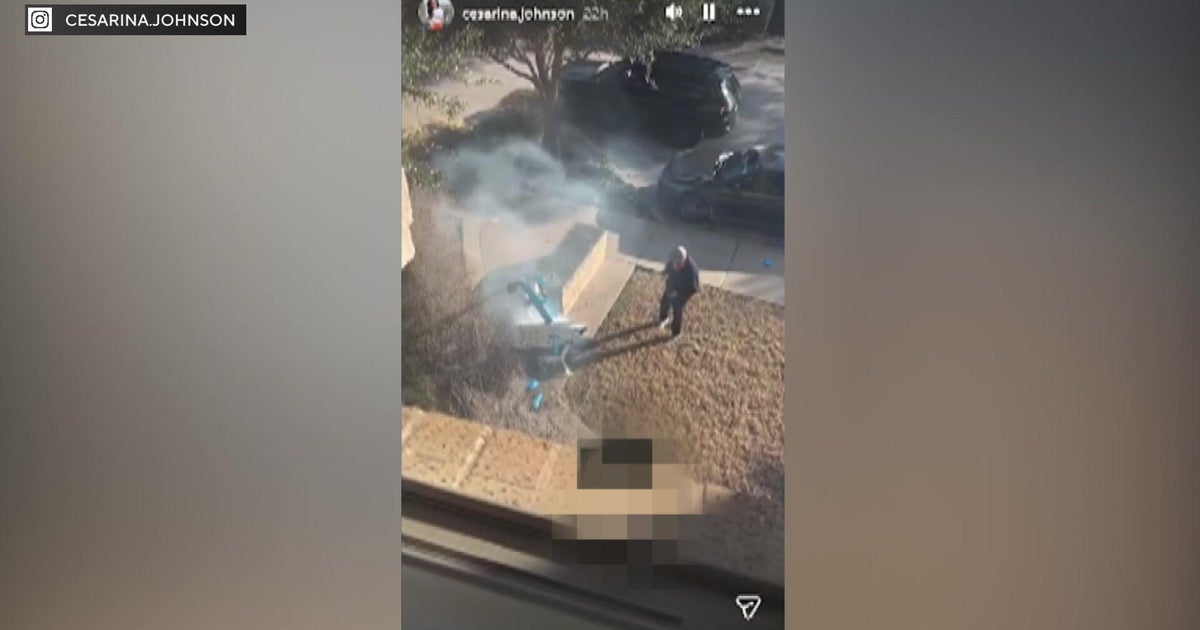9 ways drones are changing real estate
What's that buzzing above the neighbor's house?
As the spring homebuying season gets underway, drones may be a more common sight above homes about to go on the market. More and more real estate professionals are turning to drone photography and videos to better market their listings.
In August 2016, the Federal Aviation Administration loosened its restrictions on the use of drones. Drone pilots no longer need an FAA pilot's license -- just a remote pilot certificate that costs about $150 -- and drones are now approved for commercial use. That has opened them up to a host of industries, but they're especially appealing to real estate pros.
Brian Balduf, CEO and co-founder of real estate photography company VHT Studios, said his company started offering drone photo and video packages to clients last year in addition to its other photo services.
"In marketing real estate, you're trying to get people's attention and get them to spend more time looking at the property," Balduf said. "Drone photography and video is definitely unique and offers a cool, interesting perspective."
His company uses professional drones that are sturdier than some hobbyist models, he said.
"You need them to be able to carry good camera equipment and also operate in all conditions, whether it's windy or there are power lines or other obstacles," he said.
That means drone photography might not be the best strategy for home sellers going it alone. It takes a lot of skill to maneuver a $2,000, 4.4-pound machine with four spinning propeller blades, Balduf said, and in the end hiring a pro is safer and more cost-effective.
The National Association of Realtors has set up a resource page to help Realtors and other interested parties navigate the government's drone regulations as they incorporate drones into their listing strategies. "The NAR is well aware of this trend, and we will be working with regulators to make sure that people are responsibly licensed to use drone technology. We will also be encouraging our members to use it," said Bill Brown, president of the NAR.
Drones are "streamlining the buying and selling process by providing more visual information at a reasonable cost. Any opportunity you have to further educate the buyer to the property they're purchasing is a win-win for everybody," Brown said.
While this technology provides an interesting new perspective for real estate listings, it does come with a few issues, such as privacy concerns from neighbors and the possibility of the drone crashing and harming people or property.
Click ahead to see nine ways drones are changing the way people buy and sell real estate.
Budget-friendly aerial photography
Before drones became accessible to real estate pros, aerial photos of properties were limited to either grainy satellite images (like those found on Google Earth) or those taken during pricey aerial photography sessions with a hired airplane or helicopter.
VHT Studios, based in Rosemont, Illinois, offers drone photography sessions starting at $379 for up to 10 still photos and $479 for photos and a one-minute video. Open Homes Photography, based in California's Bay Area, offers almost identical aerial drone photo packages for $275 and $575, respectively. In Brick Township, New Jersey, photography and video company Osprey Perspectives offers a "basic" aerial drone photo package for $250 and a "basic" aerial video package for $425.
"It's all about budgeting your marketing dollars," said Liza Mendez, a Realtor with Pedro Realty in Miami. "Before drones, you might use a helicopter for million-dollar homes, but this is a different animal. As it becomes more affordable, I could see using this for just about any type of property."
Buzz for listing agents
One of the biggest appeals of using drones in real estate right now is simply the buzz it brings to the listing, agents said. Drones are new and trendy, and they can raise an agent's profile.
"It really sets you apart and shows you're trying to do something different from the pack," Mendez said.
While this technology is novel right now, Brown said he could see it becoming an industry standard, much like professionally shot listing photos are now.
"I think in the future, listings not enhanced with drone technology will stand out negatively because everyone else will be doing it," Brown said.
Better views of bigger homes
Drone photography is especially useful for large, unique properties that don't photograph well from the ground.
John Morrison, a real estate broker with @Properties in Barrington, Illinois, recently used drone photography to showcase a large lakefront property that had previously been on-and-off the market.
"It had an indoor basketball court and a private lakefront, but there was no way to capture it all in the frame of the camera. It just looked like an ordinary two-story house from the front," Morrison said. He used a drone to take a photo with all of those selling points in the frame: the large house, the basketball court addition and the lake.
"I found a buyer in two weeks," he said. "The biggest thing that helped close the deal was the fact that the main photo showed the scope of the house, the court and the shore of the lake behind it."
A look at the land
Drone photography won't work for homes in all areas, Morrison said.
"I probably wouldn't use it in a town center where it's on a 60-by-120 (foot) lot and surrounded by lots of neighbors' houses," he said. Likewise, downtown high-rise condos aren't great candidates for drone photography.
"It's great if the property is expansive and has something like stables, lots of land, farmland, second dwellings or additional buildings on the land," Balduf said. "You can fly out and give a tour of the entire estate."
A more personal view of the property
Videos filmed by drones can help buyers get a better idea of what a property "feels" like before they visit for a showing, Balduf said.
For example, a drone can record video while flying along a twisting, wooded driveway to give buyers a feel for what the approach to the house looks like and, as a closing shot, can take off from the home's backyard and fly over the surrounding neighborhood to give potential buyers a better view of the area.
Morrison said this appeals to the emotional aspects of the homebuying process.
"In real estate, you're not just selling homes -- you're selling a lifestyle," he said. "People buy on emotion, and these videos really pull them in."
A tour of the town
Morrison said he had also used drones to give potential buyers a way to investigate a new town.
"We've started to do town and village drone videos," he said. "It's really nice for transferees who have to move to a new town they're not familiar with. It's a nice, welcoming snapshot of what we have to offer here."
From the air, clients can see bodies of water, parks, golf courses and other landmarks and community amenities in a way they can't by simply looking at a map or a satellite photo of the area.
Remote viewings (in the future)
Remote property viewings for residential properties are still a few years off. It's more difficult to fly drones in small spaces and, according to Morrison, the cameras used on drones can give close-up photos a fisheye quality that doesn't show the homes in the best light.
Commercial properties, however, are a different story, Brown said.
Buying a store building like an old Home Depot, for example, is fairly straightforward as most Home Depot buildings are very similar. What buyers are really concerned about in commercial real estate transactions, according to Brown, is location.
Increasing privacy concerns
Before real estate agents or home sellers launch a drone to photograph a property, they should talk to their neighbors, Balduf said.
"We advise agents to notify the neighbors before the drone shoot to eliminate any concerns about the neighbors or their family appearing in the video or photographs," he said. "The neighbors appreciate being notified and will often remove toys from the yard because they want their home to look great, too."
Increasing liability concerns
What goes up must come down, and drones do crash -- especially if the pilot isn't used to the technology. While drones are relatively new in the public's consciousness, they have already caused several lawsuits after crashing into people or property.
The FAA doesn't require drone operators to have insurance, but it's a good idea to have it anyway, according to VHT. Agents should check their brokerage's insurance policy to see if it covers unmanned aircraft system (UAS) operation -- the technical term for drones. If contracting with a professional drone operator, the NAR recommends making sure that operator is insured as well.
